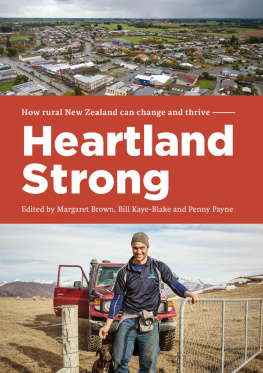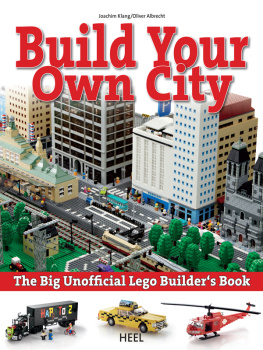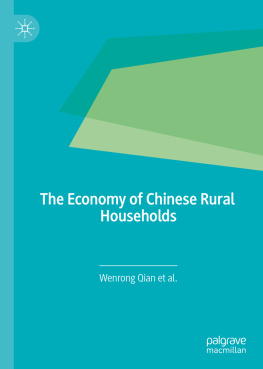Building a Resilient Twenty-First-Century Economy for Rural America
Don E. Albrecht
W ESTERN R URAL D EVELOPMENT C ENTER
U TAH S TATE U NIVERSITY
Logan
2020 by University Press of Colorado
Published by Utah State University Press
An imprint of University Press of Colorado
245 Century Circle, Suite 202
Louisville, Colorado 80027
All rights reserved

The University Press of Colorado is a proud member of the Association of University Presses.
The University Press of Colorado is a cooperative publishing enterprise supported, in part, by Adams State University, Colorado State University, Fort Lewis College, Metropolitan State University of Denver, Regis University, University of Colorado, University of Northern Colorado, University of Wyoming, Utah State University, and Western Colorado University.
ISBN: 978-1-60732-986-2 (hardcover)
ISBN: 978-1-60732-941-1 (paperbook)
ISBN: 978-1-60732-951-0 (ebook)
https://doi.org/10.7330/9781607329510
Library of Congress Cataloging-in-Publication Data
Names: Albrecht, Don E., author.
Title: Building a resilient twenty-first-century economy for rural America / Don E. Albrecht.
Description: Logan : Utah State University Press, an imprint of University Press of Colorado, [2020] | Includes bibliographical references and index.
Identifiers: LCCN 2020014459 (print) | LCCN 2020014460 (ebook) | ISBN 9781607329862 (cloth) | ISBN 9781607329411 (paperback) | ISBN 9781607329510 (ebook)
Subjects: LCSH: Rural developmentUnited States.
Classification: LCC HN59.2 .A42 2020 (print) | LCC HN59.2 (ebook) | DDC 307.1/412dc23
LC record available at https://lccn.loc.gov/2020014459
LC ebook record available at https://lccn.loc.gov/2020014460
All cover images from Shutterstock.com. Left to right: Oxford_shot; Wingedbull; Gitisak; catalina.m
To the leaders and residents of rural America. I am impressed with your dedication and ingenuity as you work to address the serious and complex obstacles that confront your communities.
Contents
Many people have played a critical role in the development of this book and I couldnt have done it without them. First, I am very appreciative of the numerous residents, leaders, policy makers, and others who are working diligently to improve economic conditions in rural America. My confidence in humankind has been enhanced as I watch these people altruistically put in countless hours to help the residents of these areas. I have learned much from them, and this book is better because of their insights.
I really appreciate the staff at Western Rural Development Center (Betsy Newman, Deanna Thompson and Riana Gayle). They have done a great deal of work to make this book a reality. They have helped with data analysis, created graphs and charts, and kept the office running while I wander around the country. It is a privilege to work with such talented professionals.
I am fortunate to work with Rachael Levay and the staff at University Press of Colorado and Utah State University Press. They have been a great help to me every step of the way.
Finally, and most important, I wish to express my sincere appreciation to my wife, Carol Albrecht. As a sociologist, she has originated many of the thoughts expressed in this book. All of these ideas are more polished because I was able to discuss them with her as we drive together through rural America. Perhaps even more important, it is Carol and my family who make my life such a joy.
The presidential election of 2016 brought the economic distress in rural America forcefully to the attention of the rest of the nation. Frustrated rural voters rejected the traditional platforms of both Republicans and Democrats and in overwhelming numbers cast their votes for political outsider Donald Trump. By winning a huge segment of the rural vote, especially in critical swing states such as Michigan, Pennsylvania, and Wisconsin, Trump was able to secure his surprise win.
The rural anger expressed in the 2016 election is largely a consequence of decades of economic stagnation and decline resulting from fewer jobs in the goods producing industries (manufacturing, construction and the natural resource industries of agriculture, logging, and mining). For example, since the 1970s, the number of jobs in manufacturing has declined by 7 million, 90 percent of coal-mining jobs have been lost, and there has been a 90 percent decline in the hours of farm labor required. Also, since 1990 two-thirds of the logging jobs have been lost. For the jobs that remain, wages in real dollars have declined (Autor and Dorn 2013; Autor et al. 2008). These trends are significant because these good-producing industries have traditionally been the most essential segment of the rural economy.
After decades of job loss and declining opportunities, many rural residents and other working-class voters were thrilled to hear the message of Donald Trump. Trump promised to bring back manufacturing, coal mining, and other jobs in the goods producing industries by taking a tough stand on immigration, by restructuring international trade agreements to protect American workers, and by eliminating restrictive environmental regulations.
The problem is that Trumps promises about restoring jobs in the goods producing sector simply cannot be fulfilled. His plans to build a wall, restrict immigration, restructure trade deals, and eliminate environmental restrictions will not bring these jobs back. The fact is that these policies do not address the base cause for the loss of jobs in the goods producing industries in the first place. Rather, the decline of jobs in the goods producing sector is primarily a consequence of technological changes. For decades, millions of jobs in agriculture, manufacturing, mining, and logging have been lost as ever-improving machines replace human labor in the production process (Albrecht 2014a; Rasker 2017). Critically, even though the number of workers in these industries is declining, production continues to increase.
Reductions in the number of jobs in the goods producing industries are a part of a massive industrial structure transformation brought about by advancements in technology. Not only are machines more efficient, but also advancements in information and communication technology have made these technological changes more dynamic. The result is that the United States and other nations around the world are transitioning from industrial economies to information- and service-based economies. Job skills in the goods producing industries that once provided a solid livelihood are becoming obsolete, and individuals who once held these jobs now find themselves unemployed or underemployed. No border wall or trade deal can prevent the continuation of this process. The same process is occurring in economically advanced nations throughout the world, and these nations are also dealing with the same feelings of anger and frustration among their residents.
Moreover, the impacts of technological change are spreading to other sectors of the economy. In the next few years, we can expect to lose millions of jobs in the retail sector as a result of online shopping and self-checkout technologies, and it is likely that millions of transportation jobs will be lost as self-driving vehicles replace truck and taxi drivers. In the emerging information and service economy, any job that consists of the same task being repeated over and over again is going to be replaced by a machine (Moretti 2012). While there are problems in using machines, employers often prefer a technical solution if it is available. While machines occasionally break down, they dont get sick, tired, distracted, fail to show up for work, ask for a pay raise, or quit and go to work for the competitor. Most important, the capacity of machines often greatly surpasses human capacity.


 The University Press of Colorado is a proud member of the Association of University Presses.
The University Press of Colorado is a proud member of the Association of University Presses.







